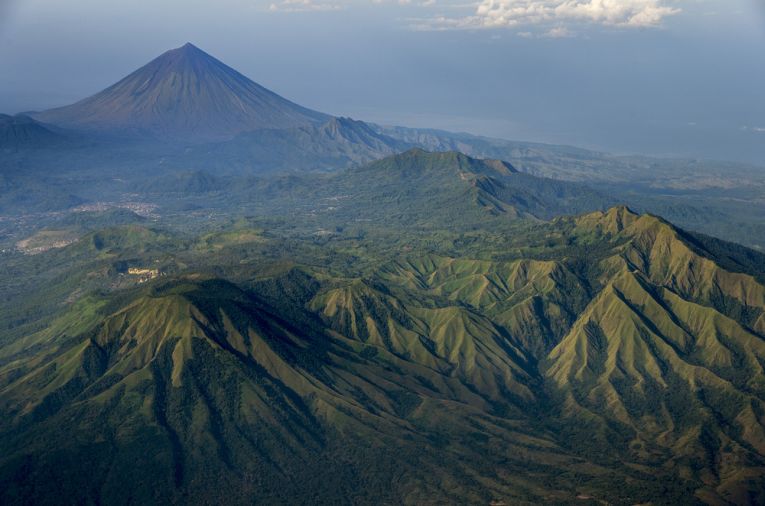The micro-humans found in Indonesia, only on the beautiful island of Flores so far, have always been controversial. They were discovered in 2003 in Ling Bua Cave, with more remains found the following year. The chimpanzee-size skull and the giant feet created a problem. How could they have been selected for the island's niches? We have a look at some similar island species in Island dwarfism.
This remarkable Homo sp. must have had ancestors and maybe even had descendants who were adapted in similar ways. One problem is the perennial lack of human remains, whatever the species. Evidence is never available to link human ancestors, as they were almost all obviously very uncommon creatures, surviving by the skin of their teeth, and frequently with only the teeth surviving.
Unless the Indonesian research has more finds, we are going to remain in a kind of "Lucy situation" for a long time. Lucy was an Australopithecus afarensis from Ethiopia, found in 1974. She was the earliest human ancestor found at the time. That time was estimated to be 3.5 million years, but links to the actual Homo genus are hard to prove.
The Flores finds are certainly hominid, although the primitive nature of parts of the skeleton reduces some researchers to suggest an early species such as Homo erectus or even earlier. "Impossible!" is the usual reaction to this , as all early humans are African, and could not be expected to have reached such a location- or could they? Flores' oldest human residents are however, only 18,000 years old, so they seem more likely to be a "modern" Homo species, even if they were relics of a relatively old colonisation.
So what about the evidence? Those large ape-like feet cannot run very well as they would trip you up! They also lack the typical human arch. The head is reduced, meaning they might have been perpetually limited in energy supplies on the island, although chimpanzee don't seem to mind this size of brain.
What kind of ecology could these people have had? Their teeth should give a clue as to diet, but researchers can't determine for example if they were vegetarian. The next excavations on the island will hopefully find these people at an earlier or later date. Then we can see their evolution over time, but given the lack of human remains anywhere on the planet, and that tropical climate, only a deep cave would be likely to preserve something of the truth for us!
Ewen Calloway gives a very unbiased account of the state of research into "Homo sapiens floriensis" within New Scientist.










